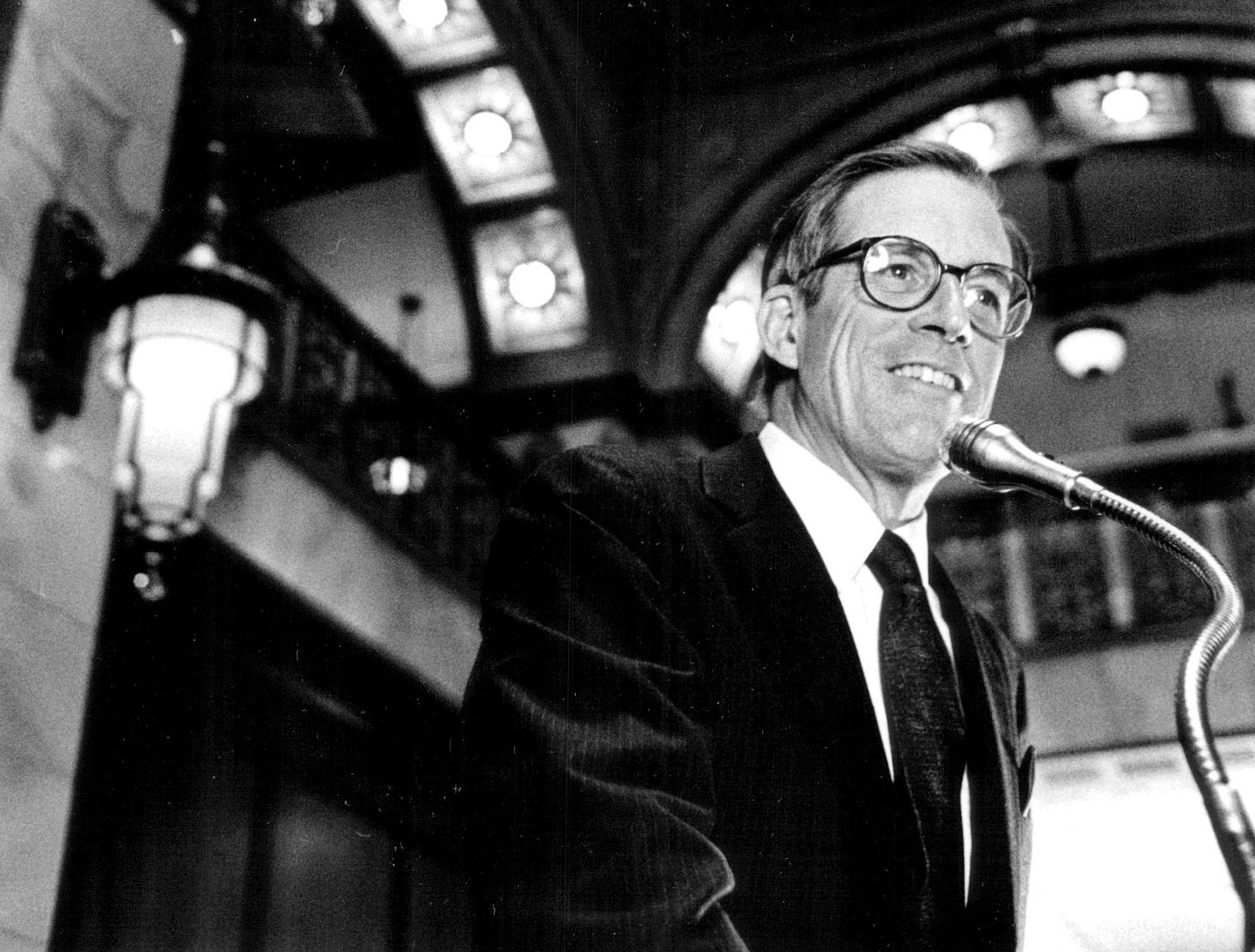Remembering Pete du Pont
The former governor and onetime presidential candidate was a man of grace, intellect, and good cheer.
I once rode through Washington’s Dupont Circle with Pete du Pont, and asked him about his relationship to the admiral on the horse. I don’t remember precisely what he said (looking it up now, I see they were first cousins, four times removed) so much as the airy and unassuming style of his response. It was a rare mixture of pride and delight—acknowledging that he was one of America’s aristocrats, but without either vanity or condescension, as if he were sharing a joke. And that moment—perhaps particularly the delight—is how I best remember Pete du Pont.
My father was fond of the aphorism that a gentleman is someone who never insults anyone unintentionally. Pete du Pont was the quintessential gentleman. His manners were impeccable, worn with an ease that made them a perfectly natural part of who he was. He carried his intellect lightly and—despite some of the sneering nicknames used by his political opponents—his treatment of others was utterly without pretense.
I got to know him in the 2000s—long after he left Delaware’s governorship and ran for president—when he was on the board of directors of a foundation where I worked. He was already in his late sixties, and had a particular grace and sophistication, along with an unselfconscious boyish charm. But he was a serious person, with firm values and strongly held views, and one had a profound sense of his candor and honesty. I imagine that disappointing him would not have been a happy experience. I saw the casual way he could put a rude or foolish person on notice, like a musketeer with an easy flick of the sword.
The first realization of his intelligence could be gleaned by the look in his eyes—interested, sparkling, seemingly always with a glint of humor. He asked pointed questions, he thought deeply, and he listened carefully. He treated everyone—no matter their rank or status—with the same genuineness and respect, and unlike many of his colleagues, he never assumed someone else would do the dirty work. It may seem a small thing, but in a room full of heavyweight capitalists and intellectuals, he carried other people’s plates to the kitchen.
After a working lunch one day, there was a basket of cookies left at the buffet sideboard that been judiciously avoided by health-conscious colleagues. Pete picked it up, and went to each person sitting around the room, teasing and cajoling everyone to take a cookie, as if we were at a children’s birthday party.
He always had a sense of fun that lightened the mood of the room he was in.
Even in an atmosphere of weighty conversations he was the personification of joie de vivre, but he did not lose the thread, or the significance, nor the serious implications of the decisions being made.
I can’t say I knew him well, or that I had a deep personal relationship with him. But from the first moment I met him, he had my respect and admiration. No matter the circumstances, or the challenges, or the demands of the occasion, he rose to meet them with cheer, integrity, and the confidence of someone who knows it will all come out right in the end.
I don’t know what better qualities one could want for a life well lived.



